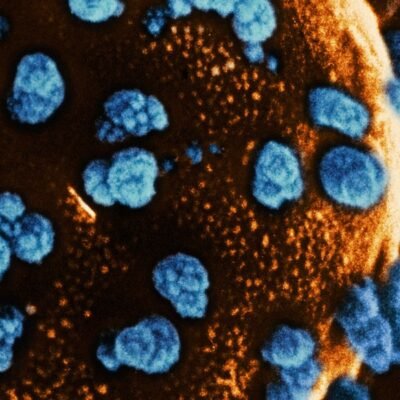NATURE

A day in the life of the world’s fastest supercomputer
- By fromermedia@gmail.com
- . September 27, 2024
Download the 27 September long read podcast The world’s fastest supercomputer, known as Frontier, is located at the Leadership Computing

World’s largest telescope pauses expansion amid funding crunch
- By fromermedia@gmail.com
- . September 27, 2024
The world’s largest telescope, the Square Kilometre Array (SKA), which is based in Australia and South Africa, is changing its

Bigger chatbots tell more lies
- By fromermedia@gmail.com
- . September 27, 2024
Hello Nature readers, would you like to get this Briefing in your inbox free every day? Sign up here. Neurons

Do orangutans like your toothpaste? Books in brief
- By fromermedia@gmail.com
- . September 27, 2024
Environomics Dharshini David Elliott & Thompson (2024) Why should an orangutan care what toothpaste a person uses, asks economist Dharshini

I botched my poster presentation — how do I perform better next time?
- By fromermedia@gmail.com
- . September 27, 2024
Illustration: David Parkins The problem Dear Nature, I’m a PhD student studying plant biotechnology at a university in South Africa.

Revolutionary drug for schizophrenia wins US approval
- By fromermedia@gmail.com
- . September 27, 2024
Brain activity is shown in gold (artist’s illustration). A newly approved antipsychotic achieves its effects by activating brain proteins called

researchers fear the end for science in Venezuela
- By fromermedia@gmail.com
- . September 27, 2024
Venezuelan President Nicolás Maduro speaks at a march in early August following a disputed election the month before.Credit: Maxwell Briceno/Reuters

Satellites are photobombing astronomy data — could AI offer a solution?
- By fromermedia@gmail.com
- . September 26, 2024
The movement of satellites causes bright stripes in astronomical images.Credit: Caltech Optical Observatories/IPAC Astronomers have developed a machine-learning algorithm that

Stem cells reverse woman’s diabetes — a world first
- By fromermedia@gmail.com
- . September 26, 2024
A woman with type 1 diabetes started producing insulin (blue) after a stem cell transplant.Credit: Lennart Nilsson, Boehringer Ingelheim International

This fish’s legs are made for walking — and tasting the sea floor
- By fromermedia@gmail.com
- . September 26, 2024
A northern sea robin (Prionotus carolinus) scurries across the sand on its six legs, which it also uses as shovels
